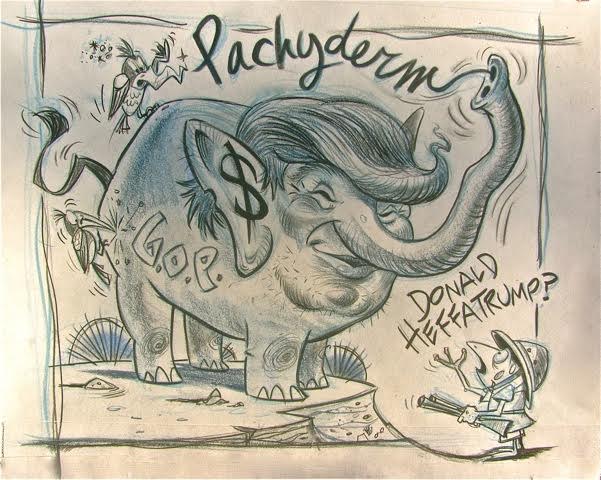|
Home
|
AWADmail Issue 742A Weekly Compendium of Feedback on the Words in A.Word.A.Day and Tidbits about Words and LanguageSponsor’s Message: Hey, Traditionistas - does “Old’s Cool” sum up your philosophy of life: old school with a little wry, served neat? Where courage, integrity, authenticity, and excellence matter? Same here. So, we’re offering this week’s Email of the Week winner, George Kovac (see below), as well as all everyone who thinks that the way things were is sometimes better than the way things are 10% off our retro-wicked ludic loot. Jezz use coupon code “SHOPYESTERDAY”.
From: Anu Garg (words at wordsmith.org)
Humans May Speak a Universal Language, Say Scientists
Russian Interior Ministry Urged To Create Language Police To Defend Russian Against Foreign Words
From: Coralyn Kelly Sheridan (coralsh northwestern.edu) I can’t even think of the word boulevardier without hearing Maurice Chevalier self-assuredly singing, “You can see zem wink ze ozair eye at ze man who broke ze bank at Monte Carlo!’ (Being old has some advantages).
Coralyn Kelly Sheridan, Orange, California
From: Scott Eichel (seichel407 gmail.com) Boulevardier and its cousin flâneur are two expressive words which, with or without a knowledge of the French language, one cannot help but get the message and the concept. And for the English version, think of that wonderful piece of doggerel,
I’m Burlington Bertie, I rise at 1030 And saunter about like a toff. I walk down the Strand with my gloves on my hand, And I walk back again with them off .... (Most colourfully performed by Julie Andrews in Star as well as by Betty Grable; not to speak of Bertie Muppet in the Muppet Show.)
Scott Eichel, Victoria, Canada
From: Steeve McCauley (steeve.mccauley+wordsmith gmail.com) The nominal boulevardier, in English at least, is the cocktail cousin to the greatest cocktail, the negroni.
Steeve McCauley, Montreal, Canada
From: Alex McCrae (mccrae7474 roadrunner.com) Hmm... pretty tiny feet, no? Not only does The Donald exhibit the quintessential pachyderm personality, but one could argue that he could well be dubbed the 2016 Teflon presidential candidate. Nothing appears to stick to this bloviating ego-tripper.
Alex McCrae, Van Nuys, California
From: Paul Varotsis (paul.varotsis.12 ucl.ac.uk) As its Greek origin may suggest, the word was created by 19th-century anatomist Georges Cuvier to describe the group made up of elephants, rhinos, and hippos. In modern biology, however, the word is obsolete. Elephants are more closely related to manatees, rhinos to zebras, and hippos to dolphins than either are to each other! This fossil of a word has survived in common language as an insult. It sounds unlikely, however, that 22nd-century people would call each other proboscideans, perissodactyls, or artiodactyls. Maybe Captain Haddock of the Tintin series may help?
Paul Varotsis, London, UK
From: George Kovac (gkovac stearnsweaver.com) Subject: revenant I first encountered this word ‘revenant’ in Seamus Heaney’s poem “Two Lorries”, about a truck bomb during the Irish troubles that took the life of the fictional narrator’s mother on an otherwise perfectly ordinary day. I have never encountered a more telling use of the word. The poem is worth reading in its entirety -- and to fully appreciate Heaney’s powerful use of the word. But here is the relevant excerpt:
As time fastforwards and a different lorry Groans into shot, up Broad Street, with a payload That will blow the bus station to dust and ashes... After that happened, I’d a vision of my mother, A revenant on the bench where I would meet her In that cold-floored waiting room in Magherafelt, Her shopping bags full up with shovelled ashes. Death walked out past her like a dust-faced coalman Refolding body-bags, plying his load Empty upon empty, in a flurry Of motes and engine-revs, but which lorry Was it now?
George Kovac, Coconut Grove, Florida
From: Martha O’Kennon (mokennon albion.edu) The underground etymology of the word “rap”.
Martha O’Kennon, Albion, Michigan
From: Raphaele Malandain (raphaelesc aol.com) While I highly trust and respect your work and Wordsmith.org, I question your choosing “bon viveur” rather than the more commonly used “bon vivant”, which you mention is a synonym. But in my view, “viveur” is rather unusual and makes me wonder whether it might be a Lebanese expression. I was born and raised in France, if that gives me any credit. Would love to hear your take on this.
Raphaele Malandain, Houston, Texas
A number of readers sent similar comments. As mentioned in the etymology,
the term is pseudo-French, meaning it’s not used in French (there is,
though, the genuine French word viveur meaning a hedonist). The synonym
bon vivant is, as you noted, the more common of the two -- we featured it
a couple of years ago.
These pseudo formations are not unique to English. French has its own, for example, shampooing (for shampoo) or self (for a self-service restaurant). Also, see some German examples in the coming Monday’s introduction to words borrowed from German. -Anu Garg
From: Dharam Khalsa (dharamkk2 gmail.com)
Dharam Khalsa, Burlington, North Carolina
From: Robert Jordan (alfiesdad ymail.com)
Robert Jordan, Lampang, Thailand
From: Anu Garg (words at wordsmith.org)
“At the wedding,” said Madame Thenardier,
Sir Ralph, a suave boulevardier,
Of Donald Trump I can affirm,
The ramifications were evident
When asked, “What he did?” He then told,
I think if ever there were,
From: Phil Graham (pgraham1946 cox.net) Ferdinand was the boulevardier children’s author, Munro Leaf. If you’re so unhappy, why don’tcha pachyderm trunk and leave? When you revenant, it makes that nant go faster. Over the years, rhapsode much to legitimate poetry. “In bonn viveur socialites,” said the expat German couple.
Phil Graham, Tulsa, Oklahoma
A THOUGHT FOR TODAY:
Words are the soul’s ambassadors, who go / Abroad upon her errands to and
fro. -James Howell, writer (c. 1594-1666)
|
|
Awards | Stats | Links | Privacy Policy
Contribute | Advertise
© 1994-2026 Wordsmith
